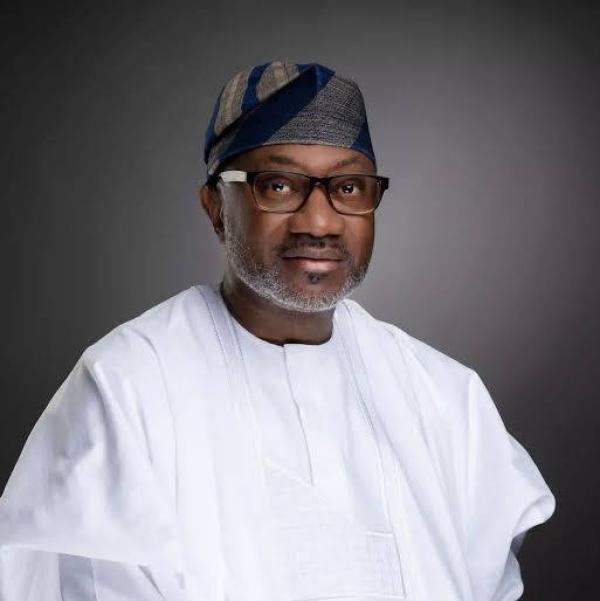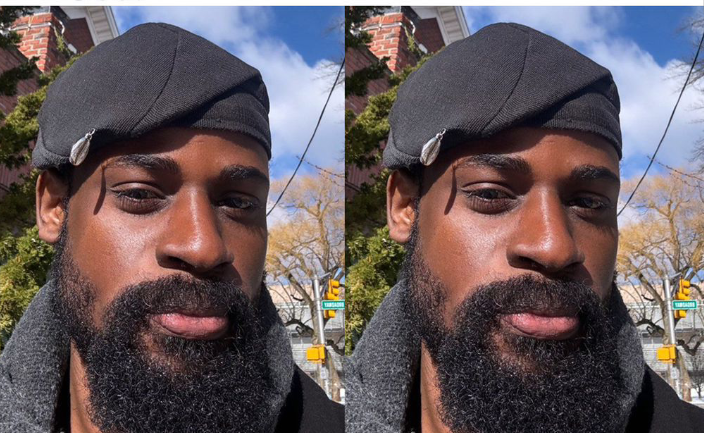
“I Dropped Out of High School for Business” – Femi Otedola Opens Up on His Unconventional Path to Success

Nigerian billionaire businessman Femi Otedola has once again captured public attention after making a bold revelation about his early struggles with education and his decision to walk away from high school in pursuit of his business dreams. In a candid statement, Otedola admitted that traditional academics never quite aligned with his passions, a reality that eventually pushed him to make one of the most life-changing decisions of his youth: dropping out of school. According to him, there was simply something about academia that did not resonate with his spirit, and instead of fighting to fit into a system he found stifling, he turned all his focus towards entrepreneurship. “I dropped out of high school… there was something about academia and me; we were not compatible. All I wanted to do was get involved in business,” Otedola confessed, his words stirring mixed reactions across social media and sparking conversations about the true meaning of education and success in today’s world.
For many, the businessman’s revelation was not only surprising but also inspiring, especially given his current position as one of Africa’s most successful entrepreneurs, philanthropists, and role models. Otedola’s journey is proof that the path to greatness is not always linear, and that sometimes, defying convention can lead to extraordinary accomplishments. Born into privilege as the son of the late Sir Michael Otedola, a former governor of Lagos State, many would have assumed that Femi Otedola’s life would naturally follow a well-defined trajectory of formal education, elite training, and eventually corporate leadership. However, his decision to break away from this expected path revealed a different story—one that highlights resilience, risk-taking, and an unyielding determination to carve his own identity outside the shadow of his father’s legacy.
Otedola’s comments come at a time when conversations around education, skill acquisition, and entrepreneurship have become pressing topics in Nigeria, a country where millions of young people struggle to balance their educational aspirations with economic realities. His words may strike a chord with those who feel trapped in academic systems that do not nurture their creativity, while also challenging societal notions that equate success solely with formal schooling. The business mogul’s revelation serves as both a caution and an encouragement: while dropping out of school is a decision that comes with immense risks, it can, in rare cases like his, also open the door to unconventional opportunities that lead to global recognition.
Throughout his career, Otedola has built an empire that extends across industries, from oil and gas to power, finance, and philanthropy. His leadership of Zenon Petroleum and later Forte Oil cemented his reputation as a visionary who could take bold risks and transform them into remarkable success stories. Beyond oil, his investments in energy, infrastructure, and financial services have reinforced his standing as one of Nigeria’s most innovative businessmen. What makes his revelation even more fascinating is that he built this empire despite what many would consider an incomplete foundation. His lack of a formal academic degree never prevented him from learning on the go, surrounding himself with experts, and mastering the intricacies of global business through practical experience.
Reactions to his revelation have been swift and divided. While many young Nigerians flooded social media with messages of admiration, saying his story is proof that passion and determination can outweigh traditional education, others warned against romanticizing dropout culture in a country already battling high rates of school abandonment. Some commentators argued that Otedola’s access to resources, his family background, and the opportunities available to him gave him an advantage that the average Nigerian youth may not have. In their view, while his story is inspirational, it should not be taken as a blueprint for everyone. Nonetheless, there is no denying the impact of his words, especially on a generation that is increasingly exploring entrepreneurship as an alternative to conventional career paths.
In the same breath, Otedola’s revelation also reflects a broader truth about the nature of success in the 21st century. Education remains important and often indispensable, but in an age driven by creativity, innovation, and self-taught skills, the traditional classroom is no longer the only gateway to greatness. His story resonates with that of other global icons such as Richard Branson, Steve Jobs, and Mark Zuckerberg, who also challenged the status quo by stepping away from formal education to pursue entrepreneurial ambitions. These figures remind the world that success is not measured by degrees alone, but by vision, courage, and the relentless pursuit of one’s calling.
For Otedola, his focus has never been solely on wealth accumulation but also on giving back to society. Over the years, he has become one of Nigeria’s most generous philanthropists, donating vast sums to healthcare, education, and public infrastructure. His multimillion-naira donations to save ailing celebrities, build hospitals, and fund academic institutions show that although academia may not have worked for him, he understands the importance of education and health for national development. This blend of business acumen and philanthropy has earned him both admiration and respect across the continent.
His latest revelation may also serve as a teaching moment for policymakers and educators in Nigeria, highlighting the urgent need for reform in the nation’s educational system. If someone as gifted and resourceful as Otedola could feel alienated from the traditional academic structure, it begs the question of how many other young talents are being lost because the system fails to nurture their strengths. His story calls for an educational framework that balances formal learning with entrepreneurial training, skill development, and mentorship, ensuring that no student feels disconnected or forced to abandon their dreams simply because they cannot adapt to rigid structures.
Interestingly, Otedola’s admission is not framed as a call for students to abandon their studies, but rather as a reflection of his personal journey. His success does not negate the importance of education but instead highlights that there are multiple paths to greatness. For some, formal schooling will be the stepping stone to success, while for others, like him, passion-driven ventures outside academia may be the way forward. The key lies in self-awareness, determination, and the courage to pursue one’s unique path with discipline and focus.
As Nigerians reflect on Otedola’s statement, one thing remains clear: his story embodies the essence of resilience and conviction. By daring to chart his own course, even when it meant leaving behind the security of formal education, he has proven that success belongs to those bold enough to take risks, learn through experience, and remain unwavering in the face of challenges. Today, his empire and influence stand as a testament to the fact that incompatibility with academia did not equate to incompatibility with success.
Femi Otedola’s revelation is more than a personal confession—it is a wake-up call to society to rethink rigid definitions of intelligence, success, and achievement. It challenges the belief that one must fit into a prescribed mold to make an impact and instead celebrates individuality, determination, and vision. While not everyone who leaves school will become a billionaire, his story underscores the importance of following one’s passion and embracing unconventional routes when necessary. For Otedola, dropping out of high school was not the end of his journey, but the beginning of a life that would redefine wealth, philanthropy, and legacy in Africa.


